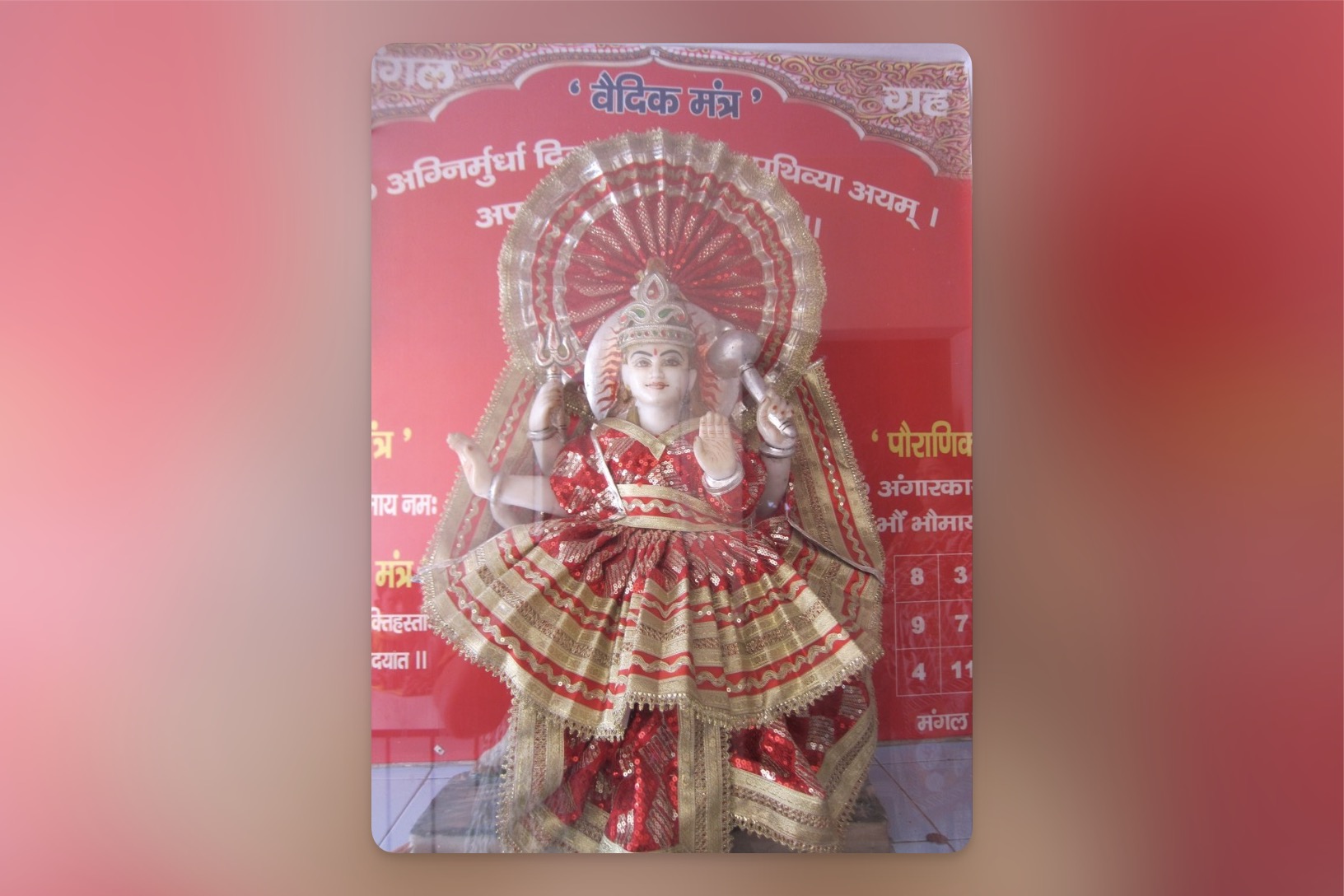मङ्गल (Maṅgala) - Mars

Etymology and Sanskrit Roots
The word मङ्गल (Maṅgala) has a fascinating duality in Sanskrit:
- While commonly translated as “auspicious” or “blessed,” it also names the planet Mars, whose astrological influence can be intense, transformative, and disruptive.
- This contrast highlights a deeper truth: genuine auspiciousness often arises through struggle, strength, and the righteous use of force.
Linguistic Origins
Derived from the root "maṅga," tied to blessings and success, the name Maṅgala reminds us that the courage and energy Mars provides can lead to triumphant, auspicious outcomes when properly directed.
Astrological Significance in Jyotish
Mars rules:
- Aries (मेष – Meṣa) and Scorpio (वृश्चिक – Vṛścika)
- The third and sixth houses (natural karakas for siblings, efforts, enemies, and obstacles)
- Tuesday (मङ्गलवार – Maṅgalavāra)
Mars is a natural malefic (पापक ग्रह – pāpaka graha), symbolizing:
- Physical stamina and action
- Aggression and warfare
- Competitive spirit and willpower
- Initiative and independence
Mythological Background
Birth and Divine Role
In Vedic mythology, Maṅgala is believed to be the son of Bhūmi (Mother Earth) and Lord Shiva. Born from Shiva’s fiery gaze, Mars inherited traits of divine wrath, focus, and protector-like determination.
This birth makes Mars:
- Protector of righteousness (धर्म)
- The spiritual warrior who defends cosmic balance
- A planet with deep ties to responsibility, justice, and assertive action
Association with Hanuman
Maṅgala is also spiritually connected to Hanuman—the embodiment of discipline, strength, and fearless loyalty. Worshipping Hanuman is often advised to mitigate harmful Mars influences.
Spiritual and Philosophical Significance
Strength, Discipline, and Courage
Mars represents the inner fire that fuels our actions, particularly when we encounter threats, injustice, or fear:
- साहस (sāhasa): Courage to face difficulty
- पराक्रम (parākrama): Heroic effort
- संयम (saṁyama): Self-control and restraint in anger
- युद्ध (yuddha): Willingness to confront and overcome obstacles
Righteous War and Balance
Maṅgala teaches the lesson of the “spiritual warrior”:
- Use force only when necessary and with dharmic intent
- Master your anger so it becomes fuel for transformation—not destruction
- Train the body and mind through discipline to uphold truth and protect the weak
Challenges and Remedies
When negatively placed or afflicted, Maṅgala can cause:
- Impatience, aggression, and accidents
- Mangalik Doṣa (माङ्गलिक दोष), affecting marital harmony
- Blood-related issues or injuries
Remedies include:
Worship of Hanuman or Kartikeya
Wearing red coral (मूंगा – mūṅgā) if astrologically appropriate
Fasting on Tuesdays or chanting the Mangal mantra:
ॐ क्रां क्रीं क्रौं सः भौमाय नमः
Oṁ Krāṁ Krīṁ Krauṁ Saḥ Bhaumāya Namaḥ
Modern Relevance
In today’s context, Maṅgala represents:
- Athletic drive and physical fitness
- Leadership and crisis management
- Military and police professions
- Engineering and mechanical ability
- Assertive activism and purposeful protest
Conclusion
Maṅgala (Mars) is the cosmic embodiment of raw strength transformed into purposeful action. While intense, it is a divine force that enables us to protect, build, and rise under adversity.
Mars teaches us that courage is not absence of fear—it’s the will to act in spite of it. His teachings remind us to walk the warrior’s path with discipline, clarity, and unwavering dharma.
🔥 Practice Tip: Reflect on how you express anger and assertiveness. Can you channel it into strength and protection rather than reaction?